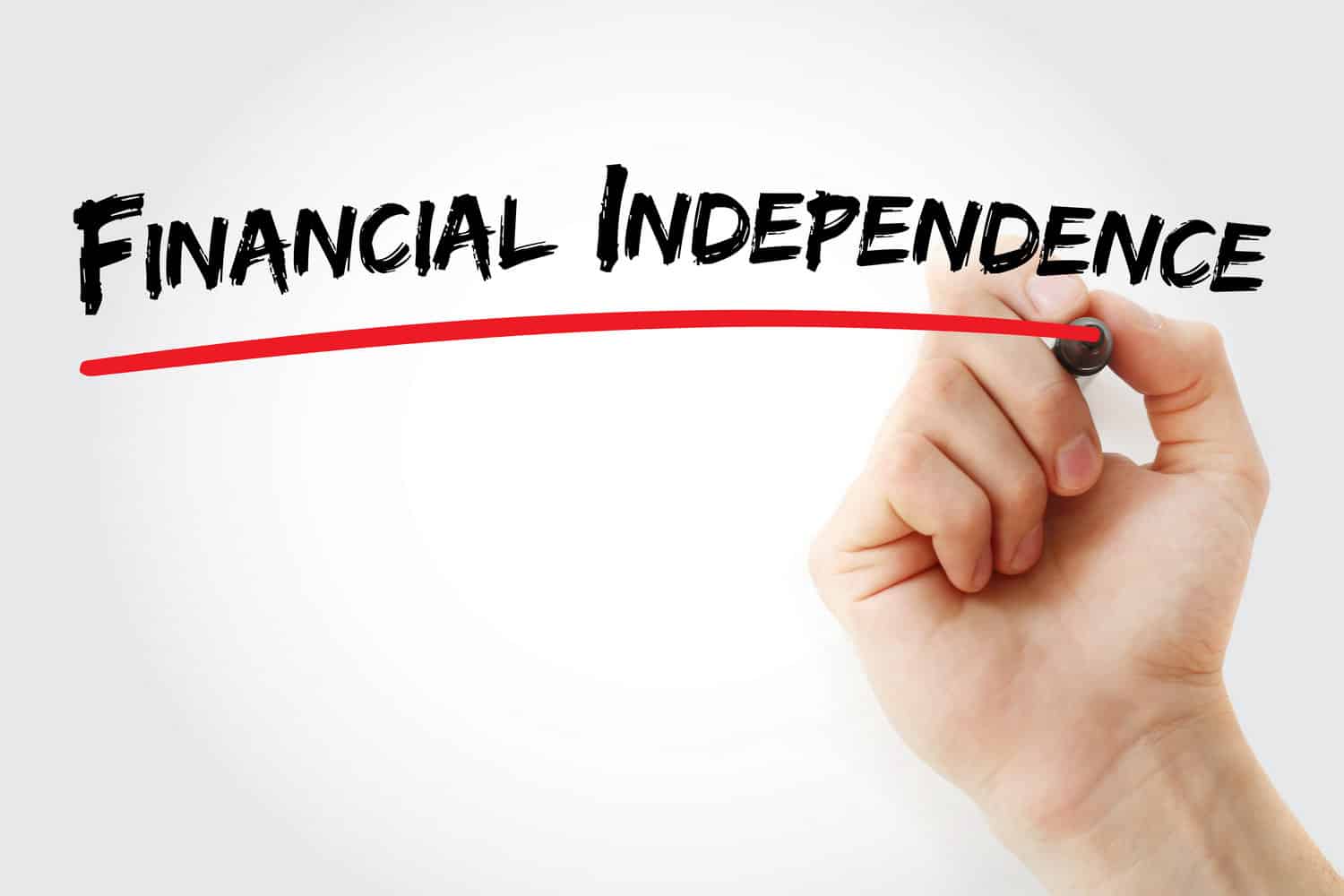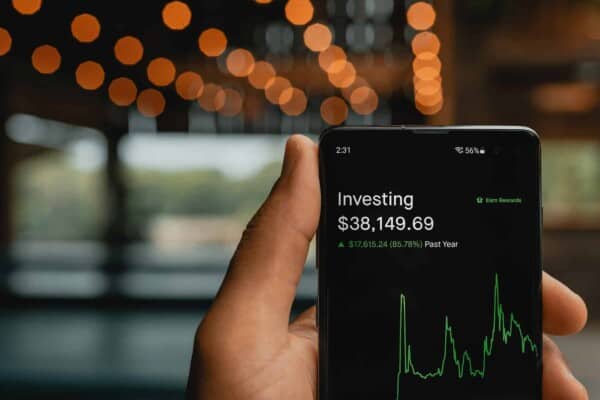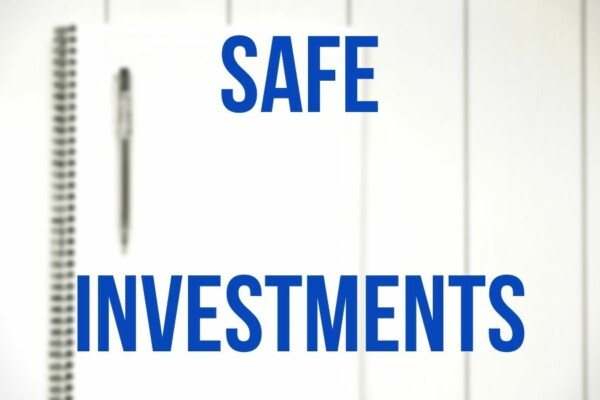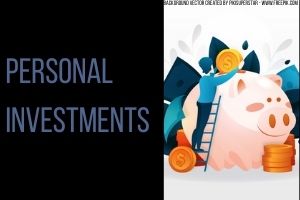The American dream has really changed a lot over the years now, hasn’t it? The dream used to be about finding someone, then finding a well paying job, buying a house and starting a family together.
While all of that is nice and good though, let’s just say that a lot of those can be achieved by ticking off a single box, and that is money.
Sure, it’s a bit vain to say that money can dictate your happiness, but let’s be honest here, would you rather be sad about not having what to put on the table that night or would you rather be sad about having too many chips broken in your Lays bag?
Money doesn’t bring happiness after all, but it can definitely enhance your life to the point where you won’t have to worry about not being homeless anytime soon.
With that out of the way though, what does it really mean to be financially well off? Many people believe that in order to be financially independent, you need to be Elon Musk or Jeff Bezos’ level of rich, but that’s not exactly right.
It wouldn’t hurt if you were that level of rich, but it’s not exactly feasible for most of us. This is why in this article we would like to give you an idea of what it truly means to be financially independent, and how you can know for sure whether you are already there or not.
What It Means to be Financially Independent?
But before we go into the numbers, we would like to first explain what it really means to be financially independent. And how can we quantify this? It’s simple really, if you are capable of living on your own income and savings without any outside help, you’re financially independent.
Think about it like this, if you are an adult and you have a stable salary income and you own your very own home and car then you are pretty much financially stable. If you can travel around with ease and pay for your medical expenses and repairs you are financially stable.
That is to say though that you are not cutting costs from other aspects of your life to afford all of that. If that is the case then you are pretty much financially independent at that point.
These types of people are able to retire at a reasonable age and they can continue to live their lives from this moment on without ever having to worry about not being able to pay for anything. That is the ideal financial independence we’re talking about here.
According to Forbes themselves, being financially independent can be described as the “state of being in which you don’t have to work to pay your living expenses”. So, if you can afford everything without looking twice at the price tag then you are good.
Just keep in mind though that livable net worth as a whole is not so simple to quantify, since it all depends on the kind of living that you’re striving for.
For some people, simply going to the mall every couple of days and buying whatever they want to is considered to be a luxury that they can only dream of achieving.
For others though, every night is a party, every day is a new investment and no matter how much they earn, it’s never enough to cover all of the costs that they’re piling up behind them.
Regardless of which of those categories you fit into, we can still break down the template for the average net worth quite easily:
- Adults that are younger than 35 years old tend to have a net worth of around $76,300
- Adults between the ages of 35 and 44 tend to have a net worth of around $436,200
- Adults between the ages of 45 and 54 tend to gravitate towards the $832,000 mark
- Adults between the ages of 55 and 64 go all the way up to $1,175,900
- Adults between the ages of 65 and 74 can have a net worth of $1,217,700
- Adults over the age of 75 drop back down to $977,600 per average
While those are rough estimates though, you can still use an online net worth calculator to see what your own net worth is.
Afterwards we recommend that you compare it to the average for your age range. This in return should help you better understand where you should be standing and what you should be striving for.
If your main goal is just to become financially independent, this will help you on your journey as it can indicate which areas of your budget need the most attention and most importantly whether you need to strive for more or not.
How Much Money Do You Need to Retire?
This is one of the most important aspects that many young people overlook, which is why they can end up never really reaching their goals. Hindsight is important when orchestrating your life after all, so don’t forget to consider this perspective before you even consider counting up your net worth.
With that being said though, what do the experts say about this? Well, they say that you will need to accumulate around 25x your annual spendings and invest it all in a 60/40 stocks and bonds portfolio.
According to Scott Trench, the CEO and president of BiggerPockets, you need to make use of this 4% rule if you want to be financially capable of retiring.
The 4% rule is essentially a conservative approach towards defining a baseline state of financial independence. You essentially take all of your investments and you multiply them by 25 every year.
The 4% comes from the fact that you can withdraw that 4% out of your investment portfolio during your first year of retirement. This will allow you to adjust it for inflation in the next couple of years without ever running dry on your income.
So, if you want to spend around $40,000 every year, you will need to multiply that by 25, so you will need $1 million in net worth. If you want to go as far as $80,000, you’ll need around $2M in net worth and if you want to spend $100,000 per year, you’ll need a net worth of $2.5 million.
Assets That Indicate You’re Financially Independent
While we did mention the fact that this revolves a lot less around a criteria and a lot more around personal bias, there are still a few indicators that you are financially independent that we can coordinate our personal lives around.
Without these few assets we would argue that we are not truly financially independent, and while the bar is set a lot higher for some people, this is the bare minimum that you need to be financially independent in our eyes:
- A large cash cushion that can withstand any financial difficulties for up to one or two years
- Rental real estate
- Business interests or royalties from an intellectual party
- Alongside their base income, social security
- Besides their main income, a part-time job or side hustle that increases their income exponentially
The Three Levels of Financial Independence
According to most experts, there are currently three levels to the modern-day financial independence that you need to strive towards if you want to never have to worry about money again.
They are the following:
Budget Financial Independence (Lean FIRE)
If you household happens to earn less than $40,000 or so per year then you are part of the lower middle class. While some people take great offense to that, trust us that it’s nothing to be ashamed of.
Most people around the poverty line earn less than $25,000 a year for a family of four, and $19,000 for a family of three, so your $40,000 is still considered to be financially superior to them by a longshot.
If you like your current lower-middle class lifestyle, just know that you’ll need around $800,000 to $1,600,000 in investable assets giving you back around $2.5% to 5% a year in order to get a return of $40,000 every year.
If you’re currently dealing in the bull market though, chances are that you’ve gotten a way bigger profit on your hands by now though. Just remember that being conservative may help you a lot more on the long run, so don’t think of it as a race, think of it as a marathon instead.
If you happen to be losing money during your financial independence years, you should retrace your steps and calculate everything better so you don’t end up losing even more on the long run.
If you do happen to be in the lower middle class though, these are some interesting advantages and disadvantages that you may have:
- You can have only one spouse do the work while the other one lives the FI life
- You may need to move to a lower cost area so that you save up on necessities
- You may need to move into a smaller house or even an RV for that matter
- You may either delay or reject the notion of having children
- You may need to work a lot more on your side hustle / passion project
- You may need to move to a more affordable country such as Taiwan where you can retire with as little as $600,000
Baseline Financial Independence (Regular FIRE)
The median household income in the US alone tends to stay around $68,000 right now. As such, if you happen to have an average income of around $68,000 or so per year you are technically considered to be part of the middle class.
So, if you will have around 2.5 to 5% of an annual return, you will need to invest around $1,360,000 to $2,720,000 to earn back around $60,000 per year.
Just keep in mind that if you never want to work again, you shouldn’t go for an overall return of anything over 5%. You can technically go for 10% out of your investable assets, but never go any higher because you’ve already technically won at life from this moment on.
The idea of financial independence is that you don’t need to save anymore from this moment on, everybody else tries to save anywhere between 20 to 80% after their tax income every year, but you won’t need to worry about any of that.
This is why if you can earn 100% of what the annual house income makes you are already making more money than everybody else around you no matter how much they save.
If you only have around 20 years left to live and you can live off of $60,000 a year, $1,200,000 is going to be perfect for you even if you make zero return out of it.
Just keep in mind though that every year, you’ll lose out on around 2% due to inflation, so you may not be as comfortable as you’d want to be during your last few years.
Chances are though that if you’ve reached this level of income, you are a bit deathly afraid of not working because it is so ingrained in you by now to do so. This may result in your spouse having to delay her own retirement because of the fear of not having enough setting in.
Blockbuster Financial Independence (Fat FIRE)
While for the other two levels, you would still need to look twice before making a serious purchase, this isn’t the case for this level of FI.
The idea behind the Fat FIRE or Obese FIRE is that you can have an income of $200,000 to $250,000 per year while also having a household income of around $300,000.
This level of financial independence can pretty much assure you a good and comfortable lifestyle regardless of where you happen to be living while raising a family of up to four.
But why $250,000 and not more? Well, the thing about that is that once you reach that level of financial independence, you don’t need to worry about not having enough more anymore, quite the contrary actually.
Instead, in order to make more money you need to work a lot more, and since the money doesn’t even get used most of the time it’s practically not worth it to go for any more than that.
So, if we do count up the idea of 2.5% to 5% return, technically you would need around $5,000,000 to $10,000,000 per individual and $6,000,000 to $12,000,000 per couple in investable assets to get to this point.
At the same time, we recommend that before you start investing you actually pay off your house because the first year here can be quite rocky.
So, if you are making around $250,000 to $300,000 in passive income without even needing to lift a finger, chances are that you’re living a good life at this point without a care in the world.
But how can you reach this level of financial independence? Well, you’ll need to do so through a combination of investment income and passion project cash flow.
Most people around this level also don’t depend on index funds, so keep that in mind before making your final move.
At the same time, just keep in mind the fact that it doesn’t matter which level of financial independence you are currently resonating around. We only wanted to bring these up for you in an order so you know what to shoot for.
Some people will be perfectly happy with the Budget FI category. Remember that you still get to earn around $40,000 per year without ever having to lift a finger.
The Baseline Financial Independence category on the other hand is where most people would want to be at because it means that you can afford to live a carefree life without ever having to worry about breaking the bank just to pay for your necessities.
The final level though is the goal that not that many of us reach, but the one that we should always aim for if we want to never have to worry about money again.
Of course, this also depends on your current situation, where you live and how big your family is. For some people even $300,000 per year could be insufficient, but let’s just say that most of us are not part of that category, so we don’t really need to worry about that anytime soon.
Conclusion
So, how much money do you really need? Well the answer heavily relies on you as a person and of course, on your general needs. What is financial happiness for you? If you are happy with less, why strive for more?
Just remember that as long as you don’t need to worry about money that’s all that matters, and that a person that earns a passive income of $40,000 per year can be more satisfied with their situation than someone that earns $300,000.
So, be happy with what you have, and if you’re not satisfied, aim for more. Chances are that you’ll know when you’ll be financially independent yourself better than anyone else.














